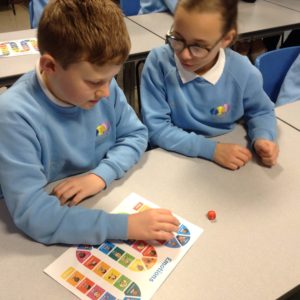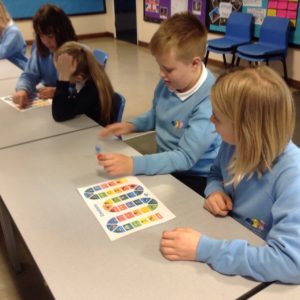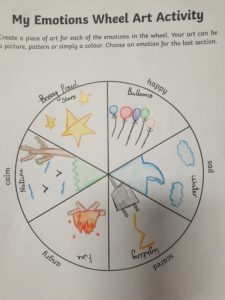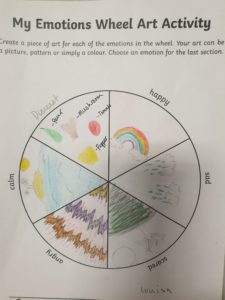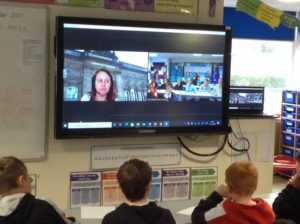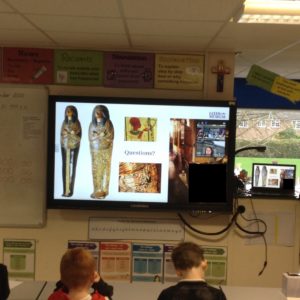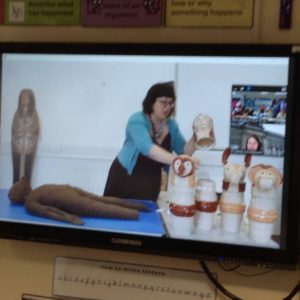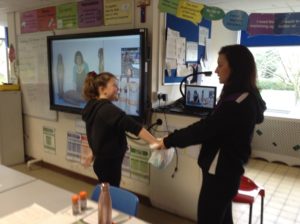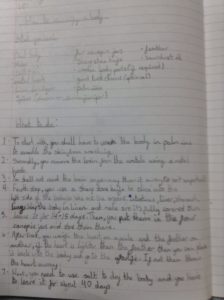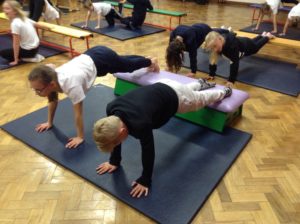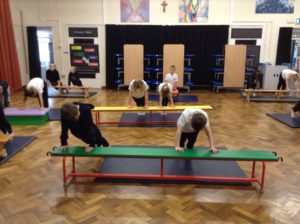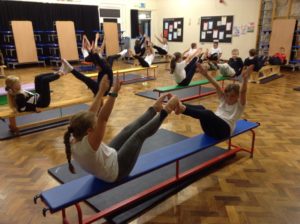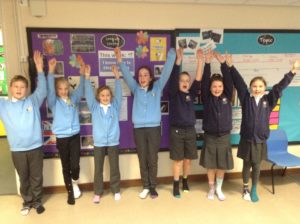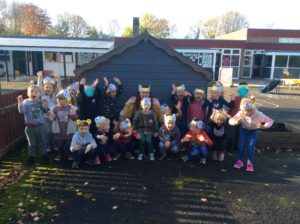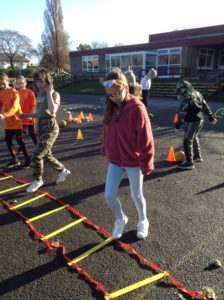Maths
Year 6
Lesson one: video, activity, answers
Lesson two: video, activity, answers
Lesson three: video, activity, answers
Lesson four: video, activity, answers
Lesson five: arithmetic
These five lessons will roughly match the teaching and learning happening in class.
You don’t have to print the worksheet. Your child can write or draw their answers on paper. Your child’s learning will be most effective if you sit with them to pause the clip and check / praise / support your child as the clip moves on.
Practise times tables on Times Table Rockstars, too. We’re concentrating on the 4 times table. Email the class teacher if you need your child’s login and password details.
(Suggested time: 30 minutes of Maths and 15 minutes of Rockstars daily)
Spelling
Look on the homework page to find this week’s spellings. Your child should complete one task each day.
- Day 1: Generate more words linked to the spelling pattern or ‘rule’. (You could look out for the words in the book you’re reading at home, or any other text.)
- Day 2: Practise the spellings using two of the ideas in our Super Spelling Strategies guide. (Set yourself and others at home a challenge of using some of the words when you’re speaking, too!)
- Day 3: Write separate sentences, each containing one of the spellings. Don’t forget to show off really neat handwriting and make sure you sentence starts with a capital letter and ends with a full stop, exclamation mark (!) or question mark (?).
- Day 4: Repeat Task 2 or 3.
- Day 5: Get an adult at home to test you on your spellings. Practise any you spell incorrectly – you could write them out carefully until you’re sure.
(Suggested time: 15-20 minutes daily)
Reading fluency
This week’s fluency text is an extract from Dracula.
In school, we generally follow this sequence:
- Day 1: Read the text aloud with your child listening. Read it clearly and slowly, pointing to each word as you read. Have a chat about any unfamiliar words.
- Day 2: Read aloud each sentence (a full short sentence or part of a longer sentence), and have your child read it back to you. Do this ‘echo reading’ for the whole text.
- Day 3: Read the text and talk about the effect of the punctuation on how you read it – pauses for full stops and expression for exclamations (!) or questions (?). Your child reads the text aloud.
- Day 4: Read together with expression (just like you practised on Day 3).
- Day 5: Your child reads independently and fluently.
(Suggested time: 15 minutes daily)
Reading comprehension
Day 1: RIC – Here’s a text about space which ends in a very famous quote.
RIC stands for:
- Retrieve: finding information in a text
- Interpret: using clues in the text to unlock information
- Choice: thinking about the author’s choice of words, techniques or organisation that make the text interesting and enjoyable to read
Day 2: Agree with your child three words from any text they’ve read which they’re less familiar with. Your child should find out what they mean (eg by checking an online dictionary or simply discuss with you) and how to use them in sentences (both when speaking and when writing). Challenge your child to write a sentence with each word in, or to drop the words into conversations at home.
Day 3: Children in 5/6 have been very animated with their thoughts about the US presidential election. Read this article from First News, a newspaper for children, and complete the activity.
Day 4: Read your fluency or RIC text again. Next, do one of the following:
- Your child could list at least ten facts they’ve read in the text. (If it’s a fiction text (a story), then the facts would be based on the story, like ‘Harry Potter picked up his broomstick’, rather than actual facts from the real world.)
- Your child could create questions and answers for what they’ve read. (For example, it could be a TV or radio interview based on what they’ve read.)
- Your child could create their own ‘RIC’ questions.
- Your child could draw and label a character or setting that they’ve read about.
Day 5: Book Club. Once a week, we have a relaxing lesson where we sit and read quietly, often with an adult. At home, we’d like you to read your favourite book or text, too.
(Suggested time: 30 minutes daily)
Writing
Task 1: We are starting to look at setting descriptions so that we can write our own next week. Watch this video about figurative language. Here is some extra information to read on BBC Bitesize.
Task 2: Read these setting descriptions (Wild Boy, Dracula, Sherlock Holmes) and create a list of similes, metaphors and any phrases or vocabulary that you would like to use in your writing.
Topic
This week’s topic learning is history.
Look at the hieroglyphics alphabet. Write a coded message using the symbols. Find out more using this BBC website.
(Suggested time: 30-45 minutes)
Science
We are learning about forces.
We are continuing to look at air resistance in class. You might want to look at this video for more information.
